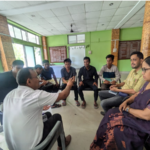Is India really independent? Is it still in the clutches of the exploiters?
Poulami Chakraborty and Saibal Krishna Sarma evaluates…
India enter its 69th birthday of being “INDEPENDENT” – the intentional purpose of capsizing the word independent is nothing but to reconsider the fact that we are still independent – and as every year goes by this year too on 15th August we celebrated our independence with pomp and glory. For all day long almost everyone wore a white or tri-colored dress, probably trying to indicate our loyalty towards the nation, and sing patriotic songs that one knows and as the day concludes, all are back to their routine chores. Our patriotism ends here, right? The answers are better known by us.
The freedom fighters of India had struggled and cleaved to the “jasba” of making Mother India free from foreign rule of the Britishers. Innumerable mothers have sacrificed their child, youths have fought for the nation and women have lost their dignity. Unfortunately, they did it for a time when India will again be enslaved by her own children in lust of power and corruption.
India, a billion plus country with a major share of youths among the teeming populace can expect that the nation develops at a fast pace. But in recent times, the nation has advanced though not in positive aspects but more on negative realm. Scams have predominantly occupied the developmental proportion of the country and largely gripping the young souls in its web-bed. The youths are a nation’s strength and with the corrupt minds following them how can we foresee a developed nation.
Youths are not always on the dark side – good and virtues do exist with our subsistence. We support the right and protest the wrong but then the biggest scams gobbling up India is unfortunately in the educational sector. The pillar that is supposed to make the backbone of the young professionals stand out, i.e. education, has been a way of many corrupt minds to earn money and make a mockery of the system. Vyapam Scam clearly tells us the seriously wrong set of minds, laws and the board.
Vyapam is everywhere, just that the name changes, similarly as the river Brahmaputra changes its name, during its journey to the sea. Vyapam becomes APSC scam in our region. APSC being the dreams of many, a good number of candidates appear who through hard work wants to do something for the society and this healthy feeling and strength is sheer discouraged by the brokers who take money and sell the seats. All these are vital entrance examinations which recruit candidates on qualifying to the vital posts in India. Doctors, State or Central Administrators, Police, teachers and the list goes on but what will these people offer from their offices? – Tips to become corrupt or the Art of bribing someone?
Madhya Pradesh Professional Examination Board (MPPEB), popularly known by its Hindi acronym “Vyapam” (Vyavsayik Pariksha Mandal), is a self-financed and autonomous body incorporated by the State government responsible for conducting several entrance tests in the state. These entrance exams are held for recruitment in government jobs and admissions in educational institutes of the state.The Vyapam scam is an admission and recruitment scam involving politicians, senior officials and businessmen who bribed politicians and MPPEB officials through middlemen, to get high ranks in these entrance tests.
The sheer scale of the scam came to light in 2013, when the Indore police arrested 20 people who had come to impersonate candidates for premedical test (PMT) 2009. Subsequent interrogations and arrests uncovered the involvement of several politicians, bureaucrats, MPPEB officials, racket leaders, middlemen, candidates and their parents in the scam. By June 2015, more than 2000 people had been arrested in connection with the scam. These included the State’s ex education minister Laxmikant Sharma and over a hundred other politicians. In July 2015, the Supreme Court of India issued an order to transfer the case to the country’s premier investigating agency, the Central Bureau of Investigation (CBI).
But can we really blame them for this level of corruption? Aren’t the education system also responsible for it? The high cut off marks in some reputed colleges of the country compels the frustrated students as well as the parents to take such actions.
For instance, the sky-high-cut-offs announced by the Delhi University ensured a dismal turn out of students on the first day of admissions.The number of admissions to the Computer Science course at the IP College, where the cut-off touched 100 per cent, remained very low. Moti Lal Nehru College, where the cut-off for B.Com (Hons.) is the highest at 9599.5 per cent, has admitted just 40 students. Like every other year, most colleges in the North Campus placed the cut-off at 90 to 95 per cent for most courses, with even off campus colleges like Ram Lal Anand, Moti Lal Nehru College, Deshbandhu College fixing high cut-offs. Students and parents looked hassled with many of them returning without a seat in the college of their choice.If this continues to happen then no one will be benefited in the long run. The students will opt for unfair means to get admitted in these reputed colleges.
In Assam as well, high level of corruption takes place in the education system. The Assam Public Service Commission(APSC) is in the news over alleged irregularities in the selection process for the Combined Competitive Examination (CCE), 2013, the results of which were declared last month. The Krishak Mukti Sangram Samiti (KMSS) staged a series of protests on the city streets demanding a CBI probe into the alleged anomalies and removal of APSC chairman Rakesh Kumar Paul.
It is the selection of some candidates belonging to powerful families that has put Paul and APSC in the dock. The protesting organizations claim that the academic achievements of some candidates selected for the jobs are pretty poor. Several organizations such as the Krishak Mukti Sangram Samiti (KMSS), Assam Public Works and the Asom Jatiyatabadi Yuba Chatra Parishad have alleged that the APSC had taken recourse to unfair means in selection of candidates. KMSS leader and RTI activist Akhil Gogoi and five of his associates were arrested during the protest.
As history speaks for itself and the nation, the corruption in the education sector is not a new trend as in 1956 the Banaras Hindu University Funds misappropriation of 50 Lakhs may have been a clear indication that sometime down the memory lane we will tread on the same ground with more sophisticated swindles and in larger scale. If one takes the pain to search, a list of scams in India from Adarsh Housing Scam to Yugoslav Dinar scam, i.e. A to Y (would be glad if Z comes up) is available. If we collectively put together the misappropriated money from all these fraudulent practices, it is not surprising to note that most of the financial problems of the nation by now would have disappeared and India as a developed nation could remarkably put its steps forward. Why to blame the Government or politicians or the system?
Why not take the onus on ourselves to say “NO” to corruption and let this start from the YOUTH as they are the ones who have the guts to bring and be the CHANGE.







